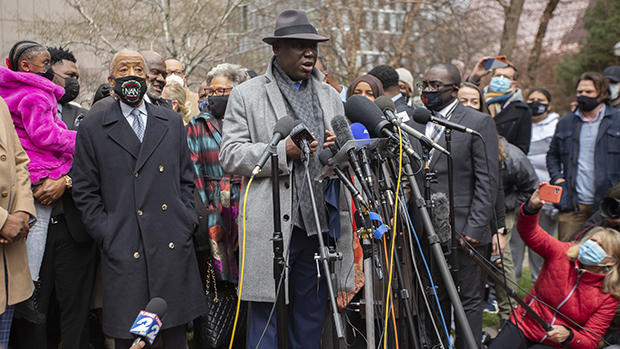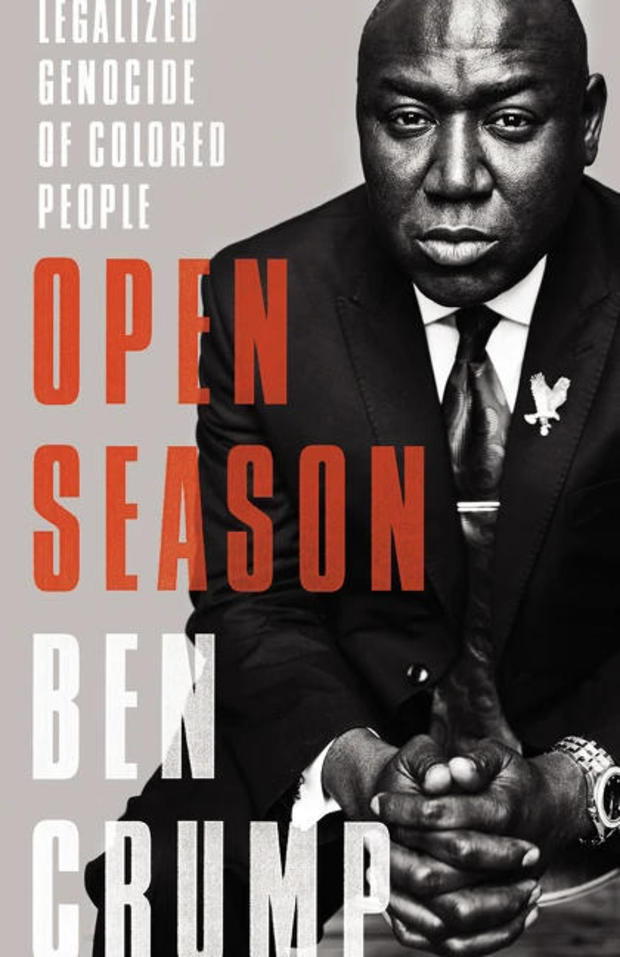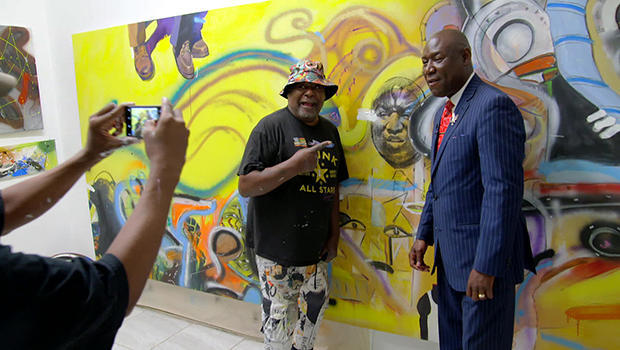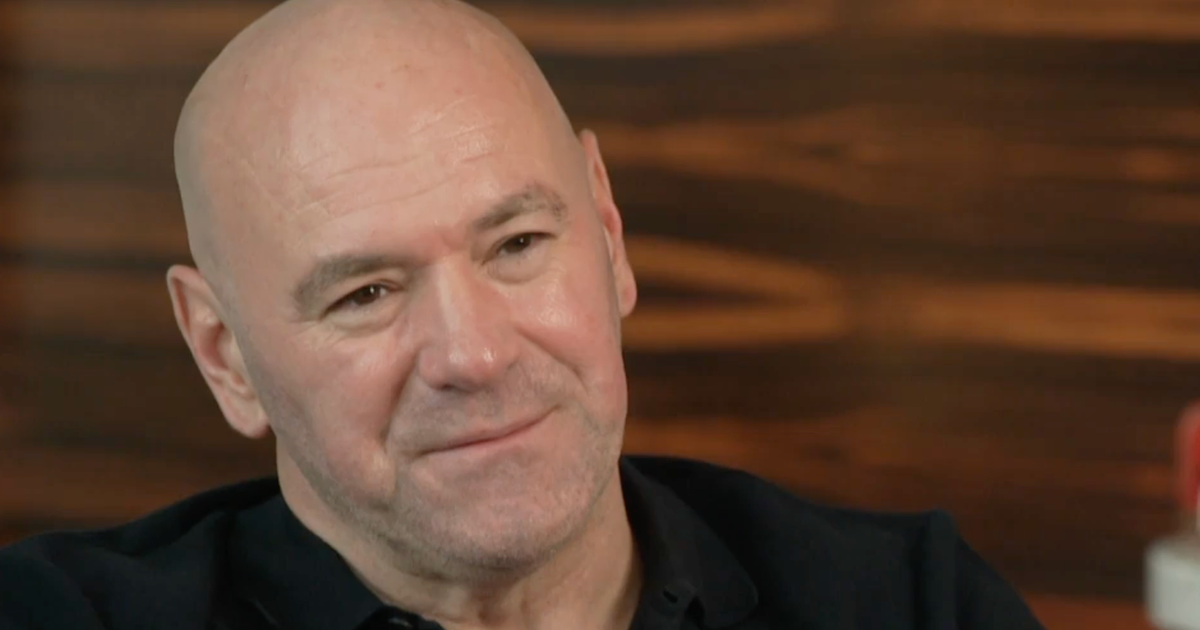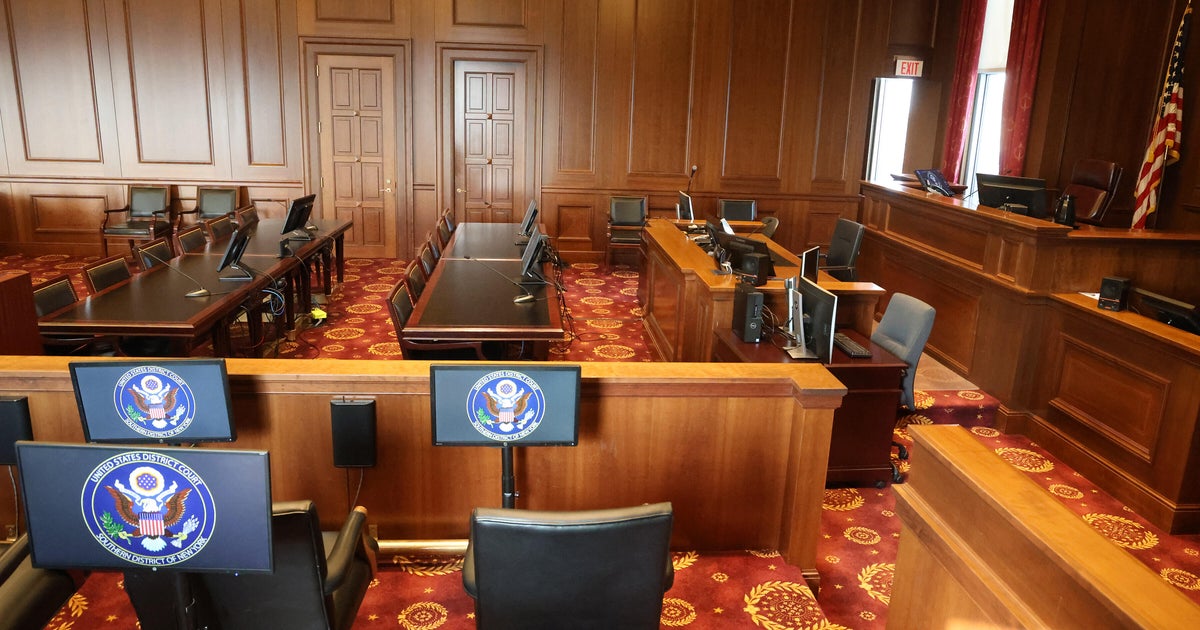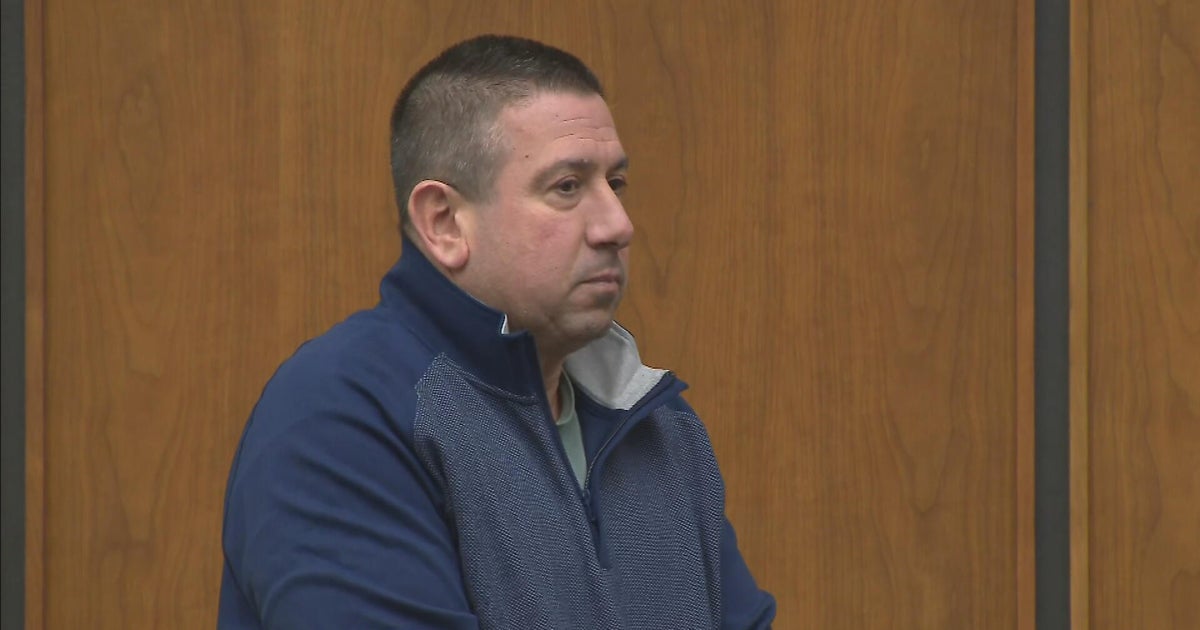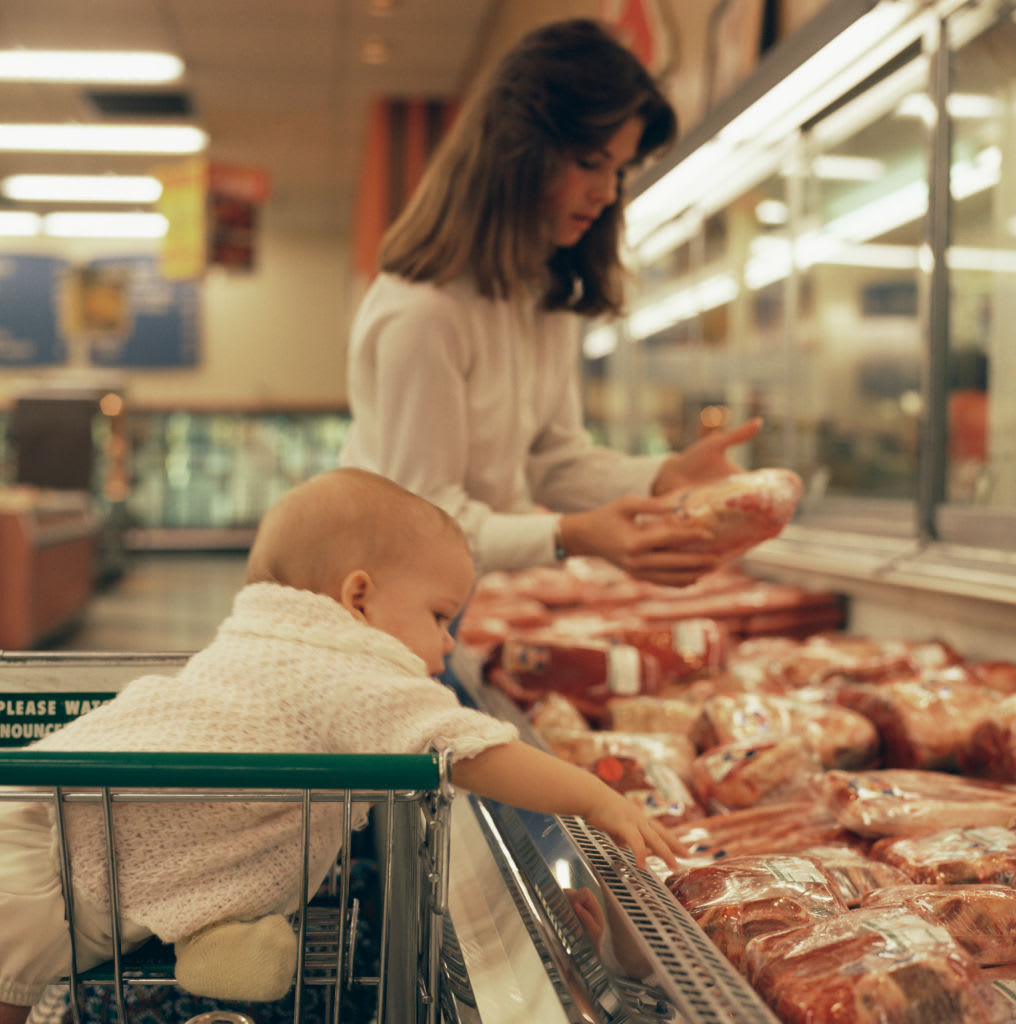The unapologetic Ben Crump
"Fists in the sky, get them up, raise them high!"
There is nothing shy or retiring about attorney Ben Crump. He thrives on media attention. It is, he acknowledges, an essential weapon in his toolbox. "I believe when you're representing a marginalized minority in America, especially a Black citizen, that you have to fight in two courts: You have to first fight in the court of public opinion, and then, if you win there, then maybe, just maybe, you might get to fight in the court of law," he said.
And so, the picture of Crump surrounded by cameras has become a familiar and recurring image.
It's an image that began taking hold in 2012, when he sought compensation for the family of an unarmed 17-year-old high school student who was visiting his father when he was shot and killed walking through his dad's neighborhood. Crump seared an image into the national consciousness of Trayvon Martin, wearing a hoodie, carrying a can of iced tea and a bag of Skittles. "Once again, law enforcement is attempting to demonize and blame the victim," he said then.
President Obama remarked, "If I'd had a son, he would've looked like Trayvon."
Crump told "Sunday Morning" special contributor Ted Koppel, "After Trayvon Martin, it was Michael Brown in Ferguson – 'Hands up, don't shoot!'; Corey Jones; Markeis McGlockton; Terence Crutcher; Botham Jean; Stephon Clark; Alesia Thomas.
"And then we come to 2020, which, during a pandemic, where everything is shut down, except implicit bias and police brutality in America, you see Ahmaud Arbery, lynched for 'jogging while Black'; then, Breonna Taylor is killed in the sanctity of her own home; then, George Floyd is tortured to death; right after George Floyd, Trayford Pellerin; Dijon Kizzee; Jacob Blake Jr.; Anthony McClain – a Black man who literally ran out of his shoes when you look at the police bodycam video; Andre Hill.
"They continue to kill unarmed Black people over and over again," he said.
In each of these cases, Crump and his associates negotiate, or litigate, a financial settlement for the victim – or, as is more often the case, the surviving relatives.
Koppel said, "You show up in a city, and I can almost hear the city manager and the sheriff and the police chief, and they're saying, 'Oh, blank, Ben Crump just showed up.' You've got that kind of a reputation now."
"We are undefeated," Crump said. "And for every case that we have represented a family in a police brutality matter, we've either gotten a verdict or a settlement. Unfortunately, hardly any of these police ever go to prison."
At age 51, Ben Crump is in his prime. Long before he achieved national prominence, Crump looked for clients wherever he could find them. "People have to get into the chosen lane of their profession sometimes by doing things that they're not as happy about," said Koppel. "When you started, folks would have used terms like 'ambulance chaser,' right?"
"Certainly."
"It's not a term I expect you to like very much?"
"I think people say a lot of things, even to this day," Crump said. "But I'm a person of faith, and I know who I am and whose I am. And no matter what people strive to me, I'm okay with it, because I'm fully focused on what my mission is."
His mission? "It's very simple: I'm an unapologetic defender of Black life, Black liberty, and Black humanity," he said. "And that's why I am proud to call myself a civil rights lawyer who believes that it's about these romantic notions of liberty and justice for all."
"Ben, you can handle yourself in a clinch, I suspect," Koppel said. "So, you're not going to be offended if I ask you a few tough ones?"
"Not at all."
"That might be more impressive, what you just said, if you were doing it pro bono, if you weren't making a lot of money off of it? And I know you're not making the money off the people you represent, but when – what was it that the City of Louisville ended up paying? Was it $12 million?"
"Twelve million dollars for the death of Breonna Taylor," he said.
"And you get 30% of that?"
"We get about a third of it – me and my co-counsels, yes."
"That's a whole lot of cash."
"Well, I will tell you, Ted, the police brutality division of my law firm is the least profitable of all of the divisions in my law firm," said Crump. "For every Breonna Taylor, there is a hundred Black people and Brown people who have been killed by the police, unjustifiably, that you don't make a penny on. But you take the case because it's the right thing to do."
One-third of a settlement (it should be pointed out) is the industry standard in such cases.
Crump projects more than a hint of the late Johnnie Cochran, who famously won O.J. Simpson's acquittal. Koppel asked, "If I said you're kind of the latter-day Johnnie Cochran, would you consider that a compliment, or a bit of a hit?"
"No, certainly a compliment," Crump replied. "Johnnie Cochran was one of the giants of the legal profession, especially amongst African Americans. However, I would be more fond of the notion of my personal hero and my North Star, who is Thurgood Marshall. I've tried to follow the trail that he blazed as much as possible."
Thurgood Marshall – a dazzlingly bright North Star, appointed as the first African American associate justice of the Supreme Court of the United States. And yet, somehow, Crump leaves an impression of harboring an even more ambitious goal: He wants to end what he calls the legalized genocide of colored people in this country.
Koppel said, "Genocide is a very particular legal term with a very particular legal definition. You're a lawyer; you understand the power of words, Ben. And when you accuse the United States in the 21st century of genocide, that has a lot of weight."
"Exactly," Crump said. "When you think about what Black people have been suffering for 400 years in America, since 1619, when the first enslaved Africans were brought to America, I would argue that legalized genocide – when you think about how the very laws that are supposed to protect us are being used to kill us. When you think about what happens in every city, in every state, in every courtroom in America, every day, they're killing African Americans, they're killing marginalized people of color, using the law, whether it's killing them physically, or it's killing them legally with these trumped-up felony convictions."
Sorting through the accumulation of mail at his Tallahassee headquarters, Crump continues to convey the impression of a man in constant motion. When he goes to visit an old fraternity brother, he brings his young daughter. He noted, "When her Daddy's in town, we always pick her up from school because she says, 'Daddy, you're out of town too much!'"
George Clinton, familiar to an older generation as the father of funk rock and leader of the band Parliament-Funkadelic, is an unabashed admirer: "You're our attorney general!" he said.
"I'm not only Black America's attorney general, but I'm also the attorney for my frat' brother, George Clinton," Crump replied.
Clinton has been painting a tribute to giants of the civil rights movement: "This picture here, you got Martin Luther King, John Lewis, and you got Ben Crump. We're still marching. He's the new generation."
Ben Crump is afraid of running out of time: "That's my recurring nightmare, that I'm running out of time. I can't keep up with the hashtags. I mean, it's just happening too quickly."
Koppel asked, "Are you worried about surviving? Are you worried about your security?"
"I never take the death threats for granted," he said. "When we get them, we report them to the FBI."
"A lot of them?"
"More than I would like. More than I would like. I know that some people could do extreme things, because they don't think that we should have equal rights – the 'enemies of equality,' as I call them.
"I believe God has a purpose for me," Crump continued, "and if I die fulfilling that purpose, then my life would not have been in vain. I do believe there has to be some things that a man is worth dying for. And the future of our children, to me, is worth dying for."
For more info:
- bencrump.com
"Open Season: Legalized Genocide of Colored People" by Ben Crump (Amistad), in Hardcover, eBook and Audio formats, available via Amazon and Indiebound | Read a sample
Story produced by Dustin Stephens. Editor: Ed Givnish.
